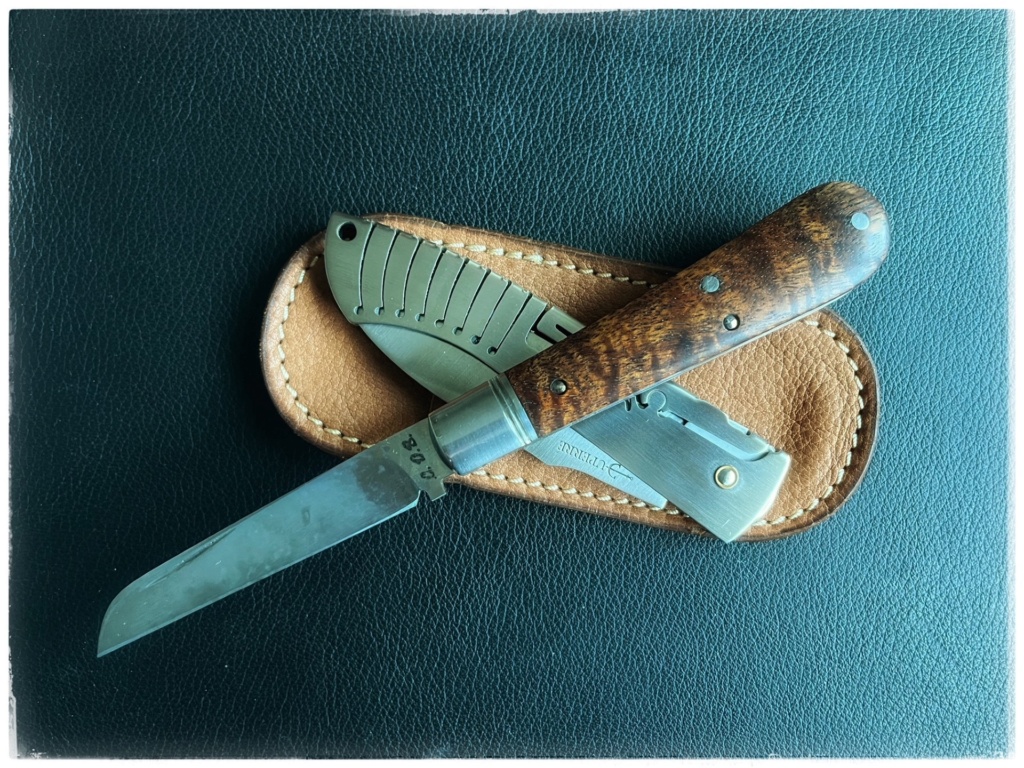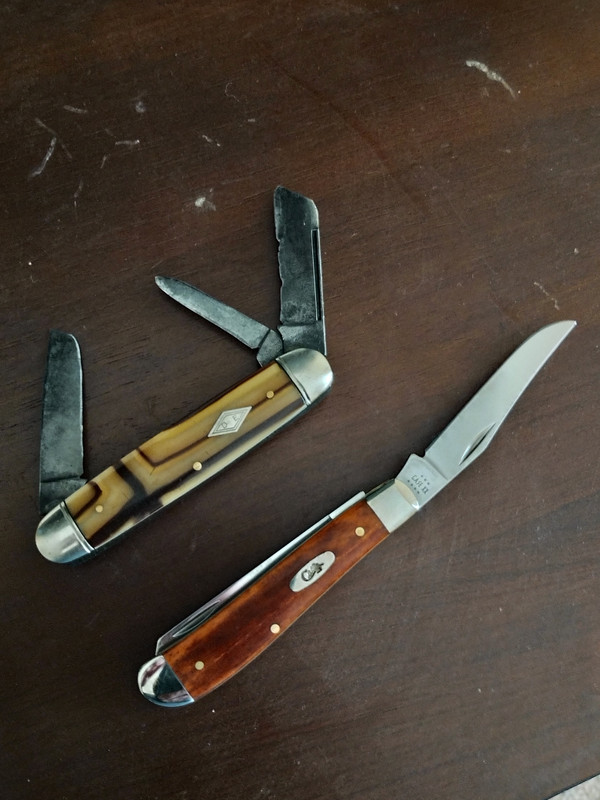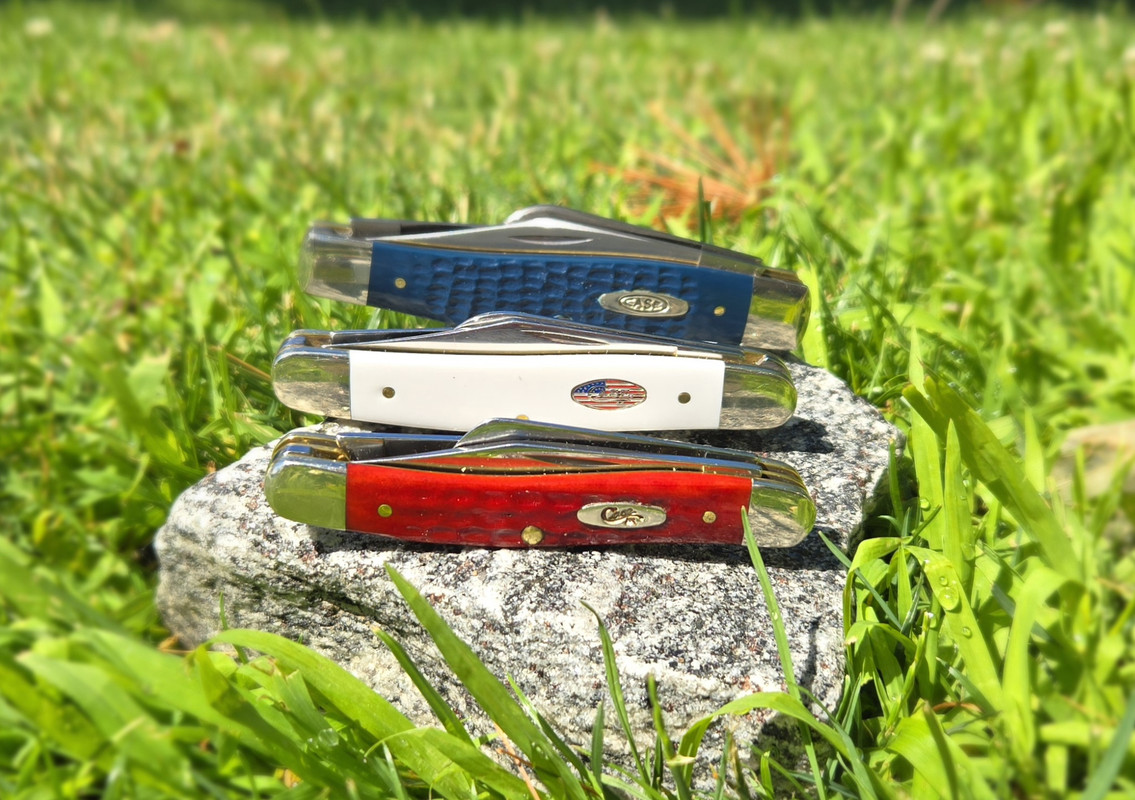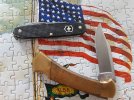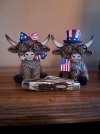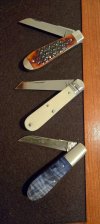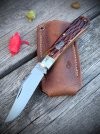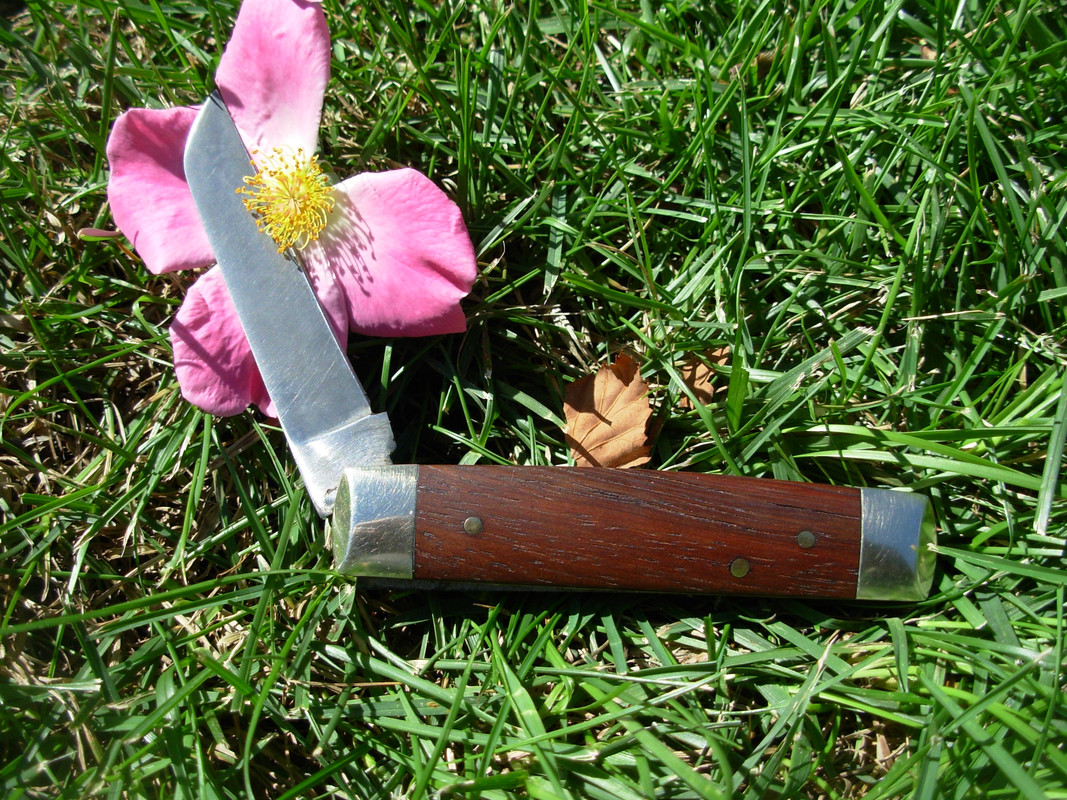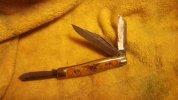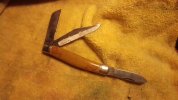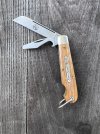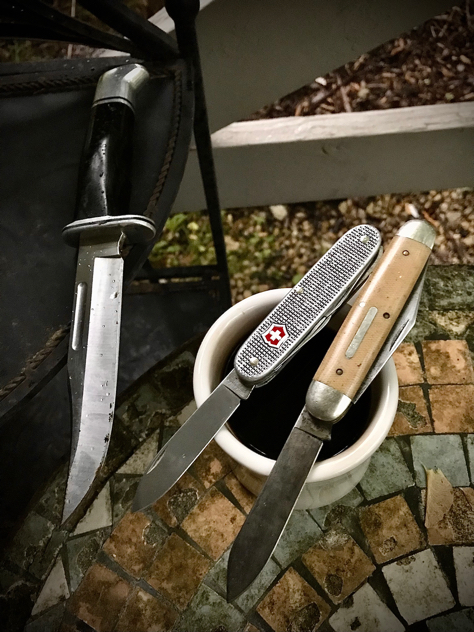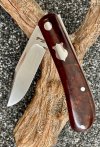BrotherJim
Gold Member
- Joined
- Feb 9, 2015
- Messages
- 4,218
CHAPTER: 302
On an evening walk through the town of Wolfpine, Chuck found the pocket knife in a pawn shop beneath a burnt-out neon sign that blinked “Open” without conviction. The pocket knife lay alone in a display case, its rosewood handle glowing faintly under a flickering fluorescent bulb. “Chuck Buck” was etched into the side. When he asked the shopkeeper about it, the man only said, “It’s meant to find the right hands.” Chuck bought it for ten dollars, though he didn’t remember reaching for his wallet. His name on the handle was just coincidence, he told himself. When he opened the blade, it felt warm, like it had been resting in someone’s pocket a moment before. Chuck Buck walked home with the pocket knife clutched tightly, feeling watched, though the streets were empty.
That night, the dreams began. Always the same: a man in the woods, carving symbols into tree bark with the same knife, muttering in a language older than English. At first, it was gibberish, guttural and broken like dry branches. But by the third dream, Chuck flinched at a word he suddenly understood: “Come.”
When Chuck awoke, he found wood shavings in his sheets and the scent of pine on his hands. Over the next week, the knife kept turning up where it didn’t belong. Beside his toothbrush. Once, beneath his pillow. He could have sworn he’d locked it away. The blade never dulled, no matter what it cut. The name on the handle shimmered as if freshly burned. He tried to remember his mother’s face, but saw only bark, and the curling symbols carved into it.
One morning, Chuck stared into the mirror and, just for a moment, saw eyes that weren’t his and a smile too thin to be familiar. The knife lay on the sink. It was no longer clear to Chuck who or what the pocket knife truly belonged to.
In desperation, Chuck threw the pocket knife into a river. Buried it. Burned it. It always showed up again, clean and waiting. His will was no longer entirely his own. There was an inevitability.
Less than a week later, the final morning came. Chuck awoke in the woods he had only seen in dreams, barefoot, the forest floor cold and damp beneath him. In one hand he clutched the pocket knife. The blade was now etched with markings he almost understood. Around him, trees bore carvings identical to those in his visions. The bark bled dark ink, like sap into moss.
The trees felt closer than they had in the dream, their trunks lined with rows of hollow carvings like open eyes.
The pocket knife wasn’t just an object. It was a witness. It had seen things. And done things no blade should. Chuck saw flashes when he closed his eyes. A boy by firelight, cutting a palm and whispering words in a forgotten tongue. A woman burying the knife beneath roots soaked with something thicker than rain. A soldier in an unfamiliar uniform using it for a ceremony steeped in dread, his hands steady, his eyes far away. Not a battlefield in sight, only pines and the pale moon. On his chest, the soldier wore a medal shaped like a wolf’s eye. That same shape appeared in the bark carvings. Each vision clawed at the back of Chuck’s mind, struggling to escape.
A low voice whispered from somewhere beyond the trees: “The blade remembers.” As Chuck stood, the wind shifted and brought the sound of many footsteps. They were circling. The forest was not empty. It never had been.
Every ten years, another man vanished, last seen in a pawn shop on a street no one could find twice, drawn by something sharp, simple, and patient.
Finders. Never. Keepers.

On an evening walk through the town of Wolfpine, Chuck found the pocket knife in a pawn shop beneath a burnt-out neon sign that blinked “Open” without conviction. The pocket knife lay alone in a display case, its rosewood handle glowing faintly under a flickering fluorescent bulb. “Chuck Buck” was etched into the side. When he asked the shopkeeper about it, the man only said, “It’s meant to find the right hands.” Chuck bought it for ten dollars, though he didn’t remember reaching for his wallet. His name on the handle was just coincidence, he told himself. When he opened the blade, it felt warm, like it had been resting in someone’s pocket a moment before. Chuck Buck walked home with the pocket knife clutched tightly, feeling watched, though the streets were empty.
That night, the dreams began. Always the same: a man in the woods, carving symbols into tree bark with the same knife, muttering in a language older than English. At first, it was gibberish, guttural and broken like dry branches. But by the third dream, Chuck flinched at a word he suddenly understood: “Come.”
When Chuck awoke, he found wood shavings in his sheets and the scent of pine on his hands. Over the next week, the knife kept turning up where it didn’t belong. Beside his toothbrush. Once, beneath his pillow. He could have sworn he’d locked it away. The blade never dulled, no matter what it cut. The name on the handle shimmered as if freshly burned. He tried to remember his mother’s face, but saw only bark, and the curling symbols carved into it.
One morning, Chuck stared into the mirror and, just for a moment, saw eyes that weren’t his and a smile too thin to be familiar. The knife lay on the sink. It was no longer clear to Chuck who or what the pocket knife truly belonged to.
In desperation, Chuck threw the pocket knife into a river. Buried it. Burned it. It always showed up again, clean and waiting. His will was no longer entirely his own. There was an inevitability.
Less than a week later, the final morning came. Chuck awoke in the woods he had only seen in dreams, barefoot, the forest floor cold and damp beneath him. In one hand he clutched the pocket knife. The blade was now etched with markings he almost understood. Around him, trees bore carvings identical to those in his visions. The bark bled dark ink, like sap into moss.
The trees felt closer than they had in the dream, their trunks lined with rows of hollow carvings like open eyes.
The pocket knife wasn’t just an object. It was a witness. It had seen things. And done things no blade should. Chuck saw flashes when he closed his eyes. A boy by firelight, cutting a palm and whispering words in a forgotten tongue. A woman burying the knife beneath roots soaked with something thicker than rain. A soldier in an unfamiliar uniform using it for a ceremony steeped in dread, his hands steady, his eyes far away. Not a battlefield in sight, only pines and the pale moon. On his chest, the soldier wore a medal shaped like a wolf’s eye. That same shape appeared in the bark carvings. Each vision clawed at the back of Chuck’s mind, struggling to escape.
A low voice whispered from somewhere beyond the trees: “The blade remembers.” As Chuck stood, the wind shifted and brought the sound of many footsteps. They were circling. The forest was not empty. It never had been.
Every ten years, another man vanished, last seen in a pawn shop on a street no one could find twice, drawn by something sharp, simple, and patient.
Finders. Never. Keepers.


